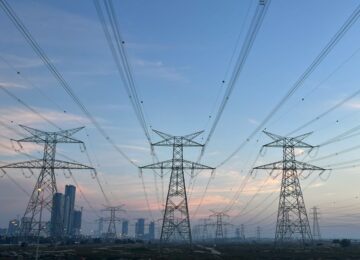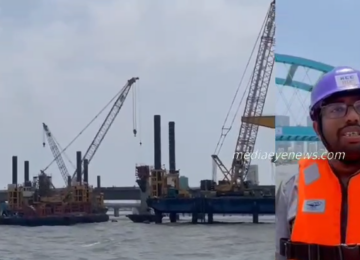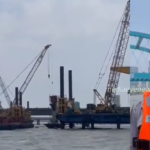A team of Indian officials has been in London, engaging in crucial discussions about the terms of the Free Trade Agreement (FTA). The ongoing negotiations for this FTA, a significant economic event that could shape the future of trade between these two nations, are facing a potential roadblock over a proposed carbon tax, as a UK Daily reports.
India’s bid to be exempted from the UK’s proposed carbon border adjustment mechanism (CBAM) is a major area of contention. As a developing country, India has argued for special attention and has put out several proposals, from a lengthier transition period to a complete exemption.
The UK government has voiced significant concerns over India’s potential exemption from the CBAM. The Guardian (newspaper) cited a UK official, underscoring the possible controversy surrounding the action.
India’s exemption could compromise the CBAM’s objectives of encouraging lower emissions and bolstering British industry, a key point of contention in the FTA negotiations. The CBAM aims to level the playing field for British companies, especially steel makers, competing against nations with laxer environmental laws and cut emissions.
If the India-UK Free Trade Agreement negotiations are more advanced, several outstanding concerns have made progress difficult, each with its weight. These include the UK’s demand for more market access for British-made electric vehicles and India’s proposal for increased visa access for skilled workers and duty-free access for specific items.
The FTA negotiations were supposed to be finished in a year, but they have taken longer than expected. But despite this delay, India and the UK are still committed to reaching a consensus, proving their steadfastness. Recent statements from Prime Minister Narendra Modi and his counterpart Rishi Sunak stressed how quickly they wanted the negotiations to end.
The value of bilateral commerce between the UK and India has increased significantly in recent years, surpassing $20 billion in the most recent fiscal year. However, the route to a finalised agreement remains obscured by the intricate concerns surrounding the FTA, most notably the carbon pricing dispute.
What Defines the CBAM?
The CBAM, a UK government effort, is scheduled to go into force in 2027. It will tax imports of several high-carbon goods, such as cement, steel, and aluminium. The levy will depend on the carbon emissions these commodities’ production in the exporting nation generates and the variation between that nation’s and the UK’s carbon pricing plan.
This legislation shields UK companies from unfair competition from nations with laxer environmental laws. The UK government views CBAM as a weapon to stop “carbon leakage,” in which companies move their operations to nations with laxer ecological laws to avoid paying for carbon. This programme supports the UK’s Emissions Trading System and aligns with their net-zero emissions goal by 2050.
Source: https://www.esgtimes.in/climate/carbon/uk-india-free-trade-deal-stalled-over-carbon-tax-report/
Photo Credit: Unsplash


































